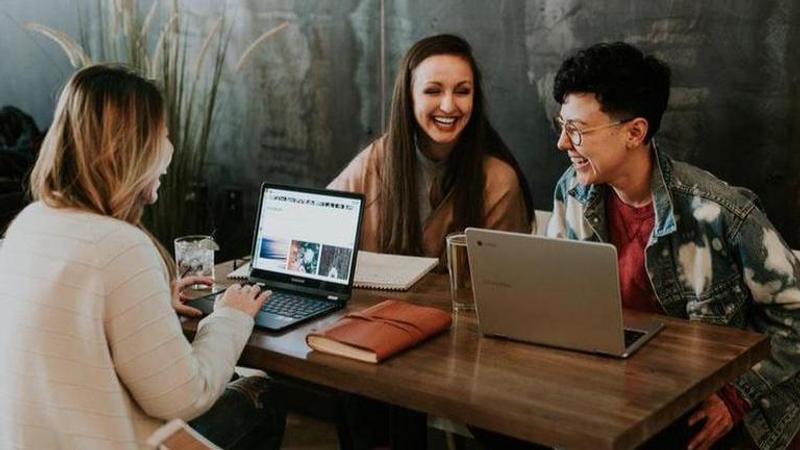Published 22:33 IST, April 23rd 2020
$23M to provide laptops for Detroit students amid COVID-19 pandemic
About 51,000 K-12 public school students in Detroit will receive computer tablets and high-speed internet to help transition from classroom to virtual learning during the coronavirus pandemic in one of the nation’s poorest big cities.

About 51,000 K-12 public school students in Detroit will receive computer tablets and high-speed internet to help transition from classroom to virtual learning during the coronavirus pandemic in one of the nation’s poorest big cities.
Schools across Michigan closed in March as part of the state’s stay home order to slow the spread of the virus. And while many suburban districts quickly moved teaching online, Detroit lagged because nine out of 10 students don’t have access to tablets, computers or the internet.
“When our executive team began prioritizing COVID-19 relief efforts, the issue of digital inequity for Detroit students rose to the top,” said Jerry Norcia, president and chief executive of DTE Energy.
The Detroit-based utility’s foundation is one of the groups contributing a total of $23 million to the initiative. Each student in the Detroit Public Schools Community District is expected to receive a laptop by the end of the academic year in June.
“We recognized that we needed to take action urgently to close the digital divide for these students and provide them with the tools necessary to thrive in the 21st century,” Norcia said.
The first six months of internet connectivity will be fully subsidized. Students then will be transitioned to a low-cost, hard-wired connection.
Nationwide, nearly 3 million students make do without home internet because of the high costs of service and gaps in its availability. The disadvantaged students are more likely to be students of color, from low-income families or in households with lower parental education levels.
The nation’s largest school districts, including Los Angeles and New York, are spending millions of dollars to provide devices and internet connections for students. Smaller districts are finding ways to boost wireless internet in school parking lots and distribute hot spots. Still, others are sticking with paper assignments and books because the digital equity issues are too much to overcome.
In April, Michigan Gov. Gretchen Whitmer issued an order closing K-12 school buildings for the rest of the academic year and that the state’s 1.5 million-plus students would learn remotely.
Districts were given flexibility on how to create distance learning programs with phone lessons, online classes and mailing materials to homes as options.
The Detroit district printed lesson packets. Online learning tools also were made available to students with internet access.
“The ability for our students to access the educational platforms that they use during the school day from home will elevate their learning year-round, not just during this crisis,” Superintendent Nikolai Vitti said. “We know that our children perform exponentially better during the school year, but when they return in September, they’ve lost much of their progress from the prior school year.”
About a third of Detroit’s 640,000 residents are believed to be living in poverty. In 2018, the median household income in the city was about $29,500, according to the U.S. Census. Michigan’s poverty rate is about 15% and the state’s median household income in 2018 was about $54,900.
“When we look back to this time in 10 years, we will see that this moment changed the trajectory of education in our city,” Detroit Mayor Mike Duggan said of the effort to bring laptops and the internet to Detroit students. “We have risen to the challenge of this pandemic and found a way to forge something positive for our children.”
Other partners in the Connected Futures program include the Kellogg Foundation, Quicken Loans, General Motors and the Skillman Foundation.
(Image source: Representative/Unsplash)
Updated 22:33 IST, April 23rd 2020




